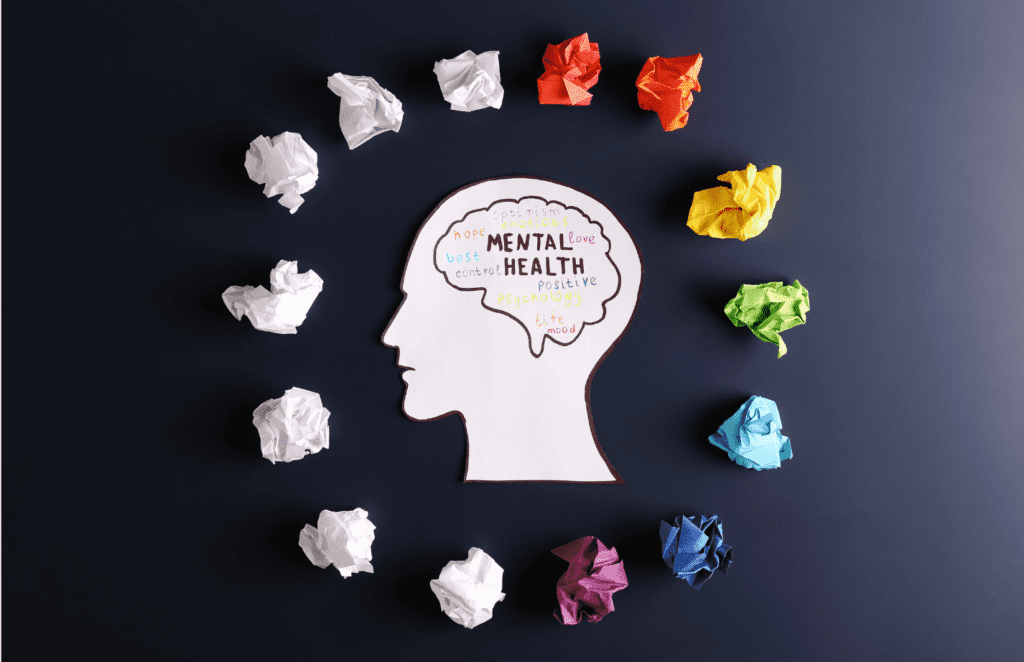 By John Mysz, LCSW –
By John Mysz, LCSW –

John Mysz is VSC’s full-time Licensed Clinical Social Worker (LCSW).
Hey everyone! I’ve decided to keep up the old “Counselor’s Corner” blog that Becky Murray, CVT, M.A., LCPC, started a year or so ago. If you’re wondering, though, I am not a clinical counselor like Becky, but a Licensed Clinical Social Worker. I will be doing my best to write articles that will hopefully be of help to all of you in some capacity. For this post, I’ve decided to write about exercise and its effects on your mental health and work.
As we approach the holidays, it’s important to allow yourself a few extra sweets that you obviously deserve, but it’s equally as important to maintain a healthy lifestyle. This involves likely breaking old habits and starting new routines of exercise in hopes that you can feel rejuvenated. It’s been proven that exercise programs can both alleviate and prevent symptoms of depression, anxiety, and substance abuse disorders. Basically, science backs the “look good, feel good” idea as long as it’s done in a healthy way. There are even private practices in Palatine and Northbrook that hire counselors and therapists to create a workout program with you like the treatment plan and it’s even covered by many insurances (Five15Fitness, True Mind + Body). As workplace stress, anxiety, and depression are all significant factors in developing burnout and/or compassion fatigue, addressing these before they become a problem is vital to the longevity of, and happiness in, your helping career.
 Exercise is vital to living a healthy lifestyle, but it’s often short-lived for those who have not made it a habit in their lives yet, which is the hardest hurdle to jump. Many think exercise means they have to go to the gym at 5 AM – 7 days a week, have a leg day, an arm day, a back day, and a butt day, and only drink kale smoothies and eat dry protein powder while calorie counting and taking glam shots in the mirror (Because if it’s not posted on IG, did it even really happen?). Fortunately, this is a misconception. The best exercise you can do is the exercise you can stick to. If it’s not sustainable FOR YOU, it’s not going to help.
Exercise is vital to living a healthy lifestyle, but it’s often short-lived for those who have not made it a habit in their lives yet, which is the hardest hurdle to jump. Many think exercise means they have to go to the gym at 5 AM – 7 days a week, have a leg day, an arm day, a back day, and a butt day, and only drink kale smoothies and eat dry protein powder while calorie counting and taking glam shots in the mirror (Because if it’s not posted on IG, did it even really happen?). Fortunately, this is a misconception. The best exercise you can do is the exercise you can stick to. If it’s not sustainable FOR YOU, it’s not going to help.
Some people enjoy running or walking, others like lifting weights, and others swim or play tennis. All of these are valid and helpful. What’s important for building up a routine is to start with an attainable goal, such as picking an activity you’re interested in and capable of doing, and attempt it 2-3 times a week. But not just this week – EVERY WEEK (I know, scary), and especially on the days you feel mentally exhausted, depressed, anxious, or frustrated. This is when it will actually help the most. Exercise has been proven to release endorphins which are the “feel-good” neurotransmitters. Plus it will likely get your mind off of whatever is bothering you and clear your mind. Many find getting an exercise buddy to be motivational and helpful in sticking to the routine. This also adds a social element to it that can bring out some competitiveness which will help keep it fun.
 It’s important to start slow and build up. Otherwise, you might end up overworked and on the couch with a pint of Ben & Jerry’s saying you’ll never do this exercise thing again. It’s important to remember the benefits won’t show immediately, so don’t quit on me just yet! Give it some time and honest commitment and you’ll be surprised by its effectiveness.
It’s important to start slow and build up. Otherwise, you might end up overworked and on the couch with a pint of Ben & Jerry’s saying you’ll never do this exercise thing again. It’s important to remember the benefits won’t show immediately, so don’t quit on me just yet! Give it some time and honest commitment and you’ll be surprised by its effectiveness.
It’s got its benefits for work too! If you follow some form of exercise routine, you will likely feel more energized, happier, and less anxious in general, which opens up an opportunity to help the animals you care for even more. What is good for you will be good for your patients and families.
The New Year is just around the corner – maybe this year that resolution can go a little differently than before.
Disclaimer: For those struggling with their mental health, it is my suggestion that you begin an exercise regimen if capable, but also reach out to myself, the EAP (Employee Assistance Program for counseling), or an outside mental health professional to help guide you through recovery. If you need help finding a therapist or other resources or just want to talk, I am more than happy to help. Stop on by, I’ll have candy.
John Mysz, LCSW
John Mysz is VSC’s full-time Licensed Clinical Social Worker (LCSW).
Relevant Resources:
Mental Health Resources for Veterinary Teams
“Spark” by John Ratey (Book)
How to look after your mental health using exercise
Exercise for Mental Health: 8 Keys to Get and Stay Movin
Local Yoga Practices often offer discounted rates for first-time yogis, do a quick Google search in your area
EAP for VSC employees: 800-292-2780
Recent Posts
About Us
Veterinary Specialty Center is a privately-owned, 24/7 emergency and specialty animal hospital located in Bannockburn, IL. Since 1976, their team of board-certified specialists has delivered advanced, compassionate care, leading the way with innovative treatments and a collaborative approach.
